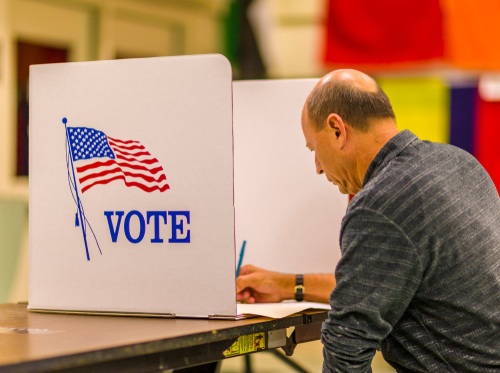Does Every Crime Deserve a Life Sentence?

Mississippi has a poverty problem. We are the poorest state in the union by a wide margin. We have the lowest gross domestic product, lowest per-capita income, and highest number of people living in poverty. The causes of our poverty are complex and generational. We didn’t arrive here quickly, and we won’t get out quickly, but as I consider root causes and contemplate solutions, I keep coming back to this theme;
In Mississippi, we give up on people far too quickly. When an individual fails, we often make the path to becoming a rehabilitated, productive citizen extraordinarily difficult, and at times, inaccessible.
Take shoplifting for example. According to Mississippi Code 97-17-41, a case of shoplifting in which the merchandise is between $1,000-$5,000 is a felony carrying a charge of grand larceny and is punishable by up to 5-years in Parchman, up to a $10,000 fine, or both. So, a 19-year-old who steals $1,200 worth of electronic equipment may be looking at some prison time. Property crimes (and all crimes for that matter) deserve swift and certain punishment or else Mississippi could end up like San Francisco, where shoplifting, looting, and lawlessness have become commonplace. But if the punishment is complete, the debt to society paid, and rehabilitation is evident, should the offender get a chance to rebuild his life?
In Mississippi, our punishments continue long after the prison sentence ends. After an individual serves their prison sentence, they remain categorized as a convicted felon for life. Virtually every job application, lease agreement, or loan application requires disclosure of felony convictions. Nonviolent felony shoplifters, for example, are forever categorized as a blight on society alongside far more serious offenders like rapists and murderers.
Moreover, Mississippi’s 1890 Constitution imposes a lifetime ban on voting, known as disenfranchisement, for people convicted of certain crimes including forgery, bigamy (the act of marrying someone while still legally married to another), and theft. Why these crimes and not others?
The authors of the 1890 Constitution were explicit that many of the provisions were aimed at disenfranchising Black citizens. “Let’s tell the truth if it bursts the bottom of the universe,” proclaimed Solomon Soladin “S. S.” Calhoon, President of the 1890 Constitutional Convention, “We came here to exclude the Negro.” And exclude him they did, through a variety of provisions, but the felony disenfranchisement section specifically focused on crimes that they thought black individuals would be more likely to commit, or at least ones they could convince all-white juries to believe were committed most often by black people. They could no longer legally prohibit black Mississippians from voting, but they could ban them if they committed certain crimes. More than a hundred years later, these crimes still keep thousands of Mississippians (black and white) from voting, creating barriers between nonviolent offenders who have served their sentences and an open path to a productive life.
House Bill 1609, authored by Rep. Kabir Karriem and co-authored by a bipartisan group of seven other lawmakers represents a crucial step toward rectifying this historic injustice. This bill would allow people convicted of certain nonviolent felonies to have their voting rights restored, if after five years after release from prison they have not reoffended. People convicted of violent crime such as rape, murder, armed robbery, carjacking, etc. would still lose their voting rights for life.
This bill is not just about restoring voting rights; it’s about reaffirming our commitment to justice, fairness, and equality. It’s also a public safety issue. According to some studies, individuals who had their voting rights restored post-incarceration were found to have a lower likelihood of re-arrest compared to similarly-situated individuals in states which continued to restrict the right to vote after incarceration.
At its core, House Bill 1609 embodies the essence of redemption—a principle deeply rooted in our shared humanity. It acknowledges that every individual, regardless of past decisions, deserves the opportunity to make restitution, rebuild their lives, and reintegrate into society as full productive citizens.
Without giving people a path to rebuild their lives, every crime becomes a life sentence. I applaud Rep. Karriem, the bill’s co-authors, Speaker White, and the House of Representatives for their support of and hard work on this important measure. I hope the Senate will act quickly to send this bill to the Governor’s desk.
